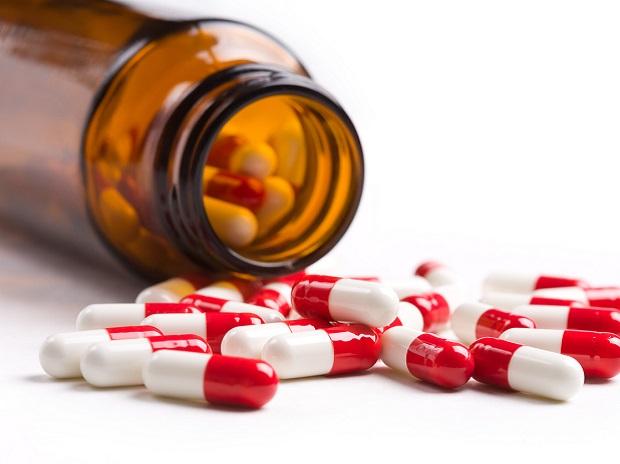This article is written by Shivangi Ghosh, currently pursuing BA LLB from Amity Law School, Delhi. The article elaborates on the Intellectual Property rights in the Indian Pharmaceutical Industry.
Table of Contents
Introduction
Pharmaceutical Industry runs on innovation to expand in the market. The aim of every pharmaceutical is a drug discovery and generating profits on such investments. The rewards for success in innovation are generally high when it impacts several lives. Medication is developed by investing huge sums of money for the research and development of any drug. Any company that wishes to attain a good position in the market has to keep developing different strategies to gain a competitive edge and to protect their positions in the market. Intellectual Property Rights plays a vital role.
Intellectual Property Rights in the Indian pharmaceutical industry
Intellectual Property Rights helps to protect the company’s invention. It helps to promote healthy competition in the market that proves to be beneficial for the economy of a country. It is also an important tool to protect their invested time, money, and effort thereby promoting industrial development and economic growth.
How does Intellectual Property Rights(IPR) protect the pharmaceutical industry
There are numerous ways in which Intellectual property protects the Pharma Industry as listed down below:
- It provides fair and effective incentives for innovative processes.
- It helps to protect any company against potential infringement.
- It provides a strong enforcement mechanism for defending infringement in the case of patented drugs.
Difference between weak and strong intellectual property regime in the pharmaceutical industry
From the intellectual perspective regime, the generic drug manufacturers imitate the bio-pharma innovations due to a lack of investment in research and development of new drug discovery in the weak IPR regime. The results are decremental for both branded as well as for the customers of the drug. The innovation is compromised in a weak IPR regime.
Whereas, on the other hand, a strong IPR regime does not necessarily mean that it is beneficial for the country. A stronger IPR regime helps to emerge branded pharma companies in protecting their innovation from the research to the development stage of the drug. IPR not only protects but proves beneficial in creating, managing, and protecting intellectual property as it becomes an important source of funding as it helps in becoming an important source of raising funds. These funds can also be used for investment in R&D.
Intellectual property rights have an impact on the industry which ranged from discovery, pricing, development, and even distribution of the drug. With stronger intellectual property rights protection regimes in developed countries, pharmaceutical companies are growing at a rapid rate. Developing countries criticize the patent system as it creates a monopoly in the market and leads to higher prices of drugs making it difficult for the consumers to buy at affordable rates.
In the Indian market, the product cannot be granted a patent, which means that drugs when reverse engineered and the method by which they are formulated can only be patented, if novel.
Patent law in the Indian pharmaceutical industry
The law that regulates patents in India is given under the Patent Act, 1970. India is a signatory to both the Paris Convention of 1883 and the Patent Cooperation Treaty (PCT) of 1970. The Patents Act details out the prerequisites of a patent which are necessary to be satisfied for it to be granted protection:
- It should be new
- It should not be obvious
- It should be useful which can be the subject matter of a patent.
There are some non-patentable inventions under the Act which includes:
- Methods of agriculture or horticulture
- Processes for the medicinal,
- Processes of surgical, curative, or prophylactic
Or other treatment of human beings, animals or plants or substances which are just due to mere admixture which results in the aggregation of the properties of the components
With regard to pharmaceuticals in India, the substances which are intended to be used or capable of being used as food compounds, drugs compounds, or even medicines or products which are produced by way of chemical processes and such processes are granted protection. Patents are granted for the processes or methods of manufacture of such products of chemical processes and not the whole compound product itself. Hence, pharmaceutical “products” are currently not given patent protection under Indian patent law due to the reasons mentioned below:
- Heavy dependence on the importing system.
- Bulk importing is costly and gives a more advantageous position to profit-making companies.
- Local brands are not encouraged to make these products as branded drugs have a better standing in the market.
- If the products are given protection, the costs will inflate.
- Cost inflation will reduce the affordability, and the consumer base will be disease-prone, and only higher economic strata consumers will be able to afford it.
- Research and Development of the local brands will suffer in the country.
Earlier, the product patent was protected under the Patents and Designs Act, 1911. However, in the year 1970, the government introduced the new Patents Act, which excluded pharmaceuticals and agrochemical products from getting patent protection. They were excluded only to break away India’s dependence on importing system of drugs and making a self-reliant drug discovery system that helps the economy from within and not creating a monopoly market by a profit-making company only.
What is the term of patent granted to an Indian pharmaceutical company
Processes of Manufacturing of a drug in the Indian market are protected for the period of seven years from the date of filing or five years from the date of sealing the patent whichever shall be less. This is different from the other inventions which are granted a period of 14 years from the date of filing unless the patent is shown to be invalid. The method and processes of manufacture of a substance shall be used as food, drug, or medicine.
Even though, the Patent Act is under the process of the amendment as it has been recommended by the International Conventions of IPR which India is a party to, the two criteria of terms are
- Period of 7 years from the filing of the patent
- Period of 5 years from the date of sealing the patent
- Whichever shall be less.
Compulsory licensing in case of patent of drugs in India
The Patents Act has provisions relating to compulsory licensing which states that on completion of three years from the date of sealing the patented drug, any person who is interested in working in the patented invention may apply for a compulsory license with respect to the invention of that particular drug.
The controller of patents may direct the patent holder of the drug to grant such a license upon the terms as it may deem fit which shall not solely be based on the fact if he/she is satisfied but with respect to the public satisfaction in relation to the drug and reasonable price requirement has been met or not. This helps to keep the consumer base satisfied and prevent the monopoly in the market.
Impact of the World Trade Organization on the pharmaceutical companies on the signatories
The impact of the World Trade Organisation has made a paradigm change in the world of business. The Agreement of Trade-Related Aspect of Intellectual Property Rights was made in the Uruguay Rounds of General Agreement on Tariffs and Trade for the basic reason of inculcating Intellectual Property Rights in the Pharmaceutical Industry, to protect the innovative sector and help the Economy of the states to strengthen.
India had been a part of GATT in the year 1994, which had become mandatory for the state to follow the GATT requirements. India is required to meet the minimum standards under the TRIPS Agreement in relation to patents and also patent laws in the pharmaceutical industry.
India’s patent laws should include provisions that include the availability of patents for both pharmaceutical products as well as the processes of inventions. Patents should be granted for a minimum term of 20 years to any invention of a pharmaceutical product or process that fulfills established criteria. Compulsory licensing provisions under Indian law will be required to be limited and conditional to comply with the TRIPS Agreement, and the government will grant such licenses only on the merit of each case after allowing the patent holder to be heard. In addition to this, there shall be no discrimination between imported and domestic products in the case of process patents, and the burden of proof will rest with the party whoever infringes.
Importance of Intellectual Property Rights in Pharmaceutical Company
Protection of invention
If there has been a discovery or development of a drug, a patent helps in the protection of the drug. It can be reverse engineered, and the drug can be protected by inventive methods. But the novel process by which that drug company manufactures that particular drug is protected. A patent gives better protection than trade secrets law. In India, trade secrets law is not codified, so the only protection drug has is patent protection.
Incremental economic growth and competitiveness amongst the Companies
Intellectual Property Rights help fund the growth of the economy of the country. Awarding the rights to the inventor helps him gain profits as well as invest that in the research and development of drugs to create more drugs and develop the already discovered ones. That is not only cost-effective but also consumer-friendly. Research and development in a country help the economy to grow and on the other hand, the market also becomes competitive.
Protects consumers and families
Public safety is the main concern and IPR helps to safeguard the interest of the people. While granting protection of a patent the safety of a product and the quality is assured which puts the mind of the consumer at ease. It helps the consumer to make the right choice. Also in Indian market where the product is not granted protection and the process is, the Companies compete and help to reduce the price of the product which helps the customer base at large.
Protection against the potential infringement of the drug discovery and development
Intellectual property rights allow pharmaceutical companies to take strict actions against fake drugs. These rights help countries across the globe to ensure safety in their medical inventions. The potential infringers who make counterfeit drugs are penalized for fraudulent behavior towards the consumers for the sake of creating profit only which the authorities prohibit.
Future of the Indian pharmaceutical industry and patent laws
The absence of product patent protection for pharmaceuticals and agrochemicals has led many multinationals to limit their portfolios of drugs that have expired or only a few exist. This has resulted in an erosion of their market share because local manufacturers have been introduced the most advanced medicines through reverse engineering methods.
Conclusion
It is necessary for pharmaceutical companies to set aside a budget for research and development, marketing, and legal costs. IPR should be utilized to the benefits of patent rights and data exclusivity to compete with generic manufacturers. Pharmaceutical companies should have an effective intellectual property strategy that will maximize returns on investment and maintain strong patent protection. Promoting innovation is the key to drug discovery and IPR helps you achieve the goal of having a competitive edge. The pharmaceutical product has not been granted protection, but it shall be modified and be given protection under the act. The term will also be revised unless the authority is convinced by the state of the country.
A developing country may not allow branded profit-making countries to establish in India and sell drugs that are not consumable by the whole country. Indian Market is still developing and the customers require cost-efficient products and not high-cost drugs, IPR will help to brand several companies which might not be fruitful for the citizens. So the local brands in India in the past few years have been gaining an advantage.
References
- https://www.wipo.int/edocs/pubdocs/en/wipo_pub_1012-chapter5.pdf
- ttps://www.drugdiscoverytrends.com/intellectual-property-and-the-indian-pharmaceutical-industry/#:~:text=Intellectual%20Property%20Rights,-These%20innovations%20lead&text=Patents%20provide%20pharma%20companies%20exclusive,commercialization%2C%20and%20protection%20of%20invention.
- http://www.nishithdesai.com/fileadmin/user_upload/pdfs/Patents_and_the_Indian_Pharmaceutical_Industry.pdf
- https://www.mondaq.com/india/patent/865888/patents-and-the-indian-pharmaceutical-industry
LawSikho has created a telegram group for exchanging legal knowledge, referrals and various opportunities. You can click on this link and join:
 Serato DJ Crack 2025Serato DJ PRO Crack
Serato DJ Crack 2025Serato DJ PRO Crack











 Allow notifications
Allow notifications


